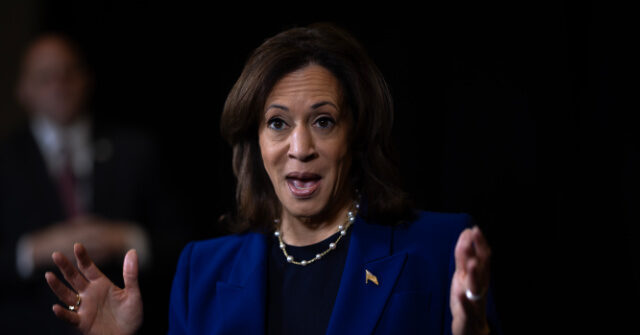Vice President Kamala Harris, the failed presidential candidate alongside Minnesota Governor Tim Walz, continues to solicit donations despite recently losing to President-elect Donald Trump and his running mate, Senator JD Vance. Reports indicate that Harris’s campaign is still deeply mired in debt, prompting her to reach out to supporters for financial assistance. Fundraising messages have been dispatched even after the election results, underlining the precarious financial situation of her campaign following a highly contested race.
As outlined in a report by The Daily Caller, Harris’s most recent appeal to supporters included a message acknowledging the feelings of fear and sadness following the election. Her communications assert that funds raised would support legal initiatives and recount efforts for closely contested congressional races. Harris’s team seems to be capitalizing on the uncertainty following the elections, hoping to rally support for financial contributions to address immediate post-election challenges.
The emails sent by Harris’s campaign cleverly direct potential donors to the ActBlue page for the Harris Victory Fund. However, the fine print reveals the allocation of those donations, where the vast majority will go to the Democratic National Committee (DNC) rather than directly to Harris’s campaign. This allocation scheme raises questions about the true impact of the donations, as only a small portion will fund Harris’s efforts directly. Additionally, the messaging aims to create urgency and concern regarding ongoing political battles, emphasizing the necessity for support amid tough electoral circumstances.
Reports indicate that Harris’s campaign significantly overspent during the final stretch of the election cycle, accumulating a staggering $20 million in debt. A staff member confirmed the debt’s authenticity, reflecting on the campaign manager, Jen O’Malley Dillon’s strategy that involved substantial spending, including high-profile concerts featuring superstar artists. The reliance on extravagant fundraising methods raised eyebrows and suggested a mismanagement of funds. This debt burden highlights the serious financial struggles Harris’s campaign faces in the aftermath of an ambitious yet unsuccessful bid for the presidency.
In the wake of the election, Trump has taken a jab at the Democrats’ financial plight, noting their debts and touching on their spending patterns during the campaign. Trump humorously suggested that his campaign might extend assistance during this challenging time, referencing the considerable funds left over from his own campaign. This light-hearted commentary reveals not only the ongoing tensions between the two parties but also Trump’s continued influence in Republican circles and his focus on party unity in the face of Democrat struggles.
The dynamics of Harris’s post-election fundraising efforts, coupled with Trump’s remarks, illustrate a fragile state of affairs for the Democratic Party moving forward. As Harris seeks to manage her campaign’s debt through appeals for contributions, the implications of their financial decisions loom large. The overarching narrative showcases not just the challenges faced by defeated candidates, but also the broader electoral strategies, funding complexities, and the ongoing political rivalry characterizing the American political landscape in the wake of the elections.

